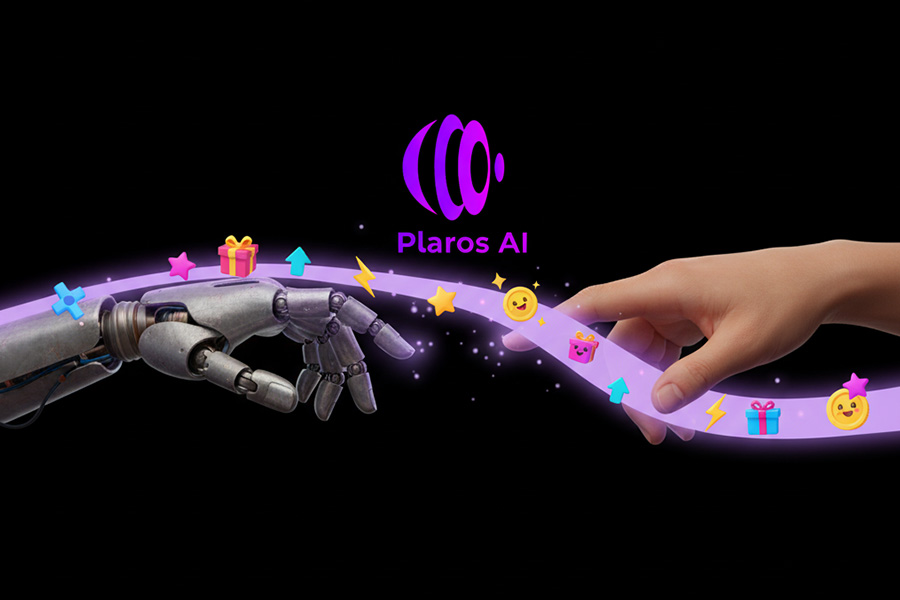It’s simple to get caught up in the jargon in a world full of AI solutions. A system’s fundamental design must be examined in order to fully comprehend what makes it unique. A tool is just as good as its architecture, according to developers, CTOs, and tech executives. This is where a thorough examination of the Agnes AI platform reveals a system designed for strength, adaptability, and trust. Having an intuitive user interface is one thing, but supporting it with a strong and expandable infrastructure is quite another.
The Agnes AI platform’s real strength is not only in its functionality but also in its design. It was designed from the bottom up to address the security issues and common bottlenecks that many AI systems face. This platform is an ally of developers and a true enterprise-grade solution for 2025. Let’s examine its key architectural pillars and unique features.
1. A Hybrid, Microservices-Based Architecture
The Agnes AI platform is based on a microservices design rather than a single, monolithic framework. From user identification and integration endpoints to data intake and natural language processing, every essential function runs as a separate, containerised service. There are two reasons why this design decision is crucial. It produces a great deal of fault tolerance, to start. A problem with one part does not bring down the system as a whole. Second, it makes scaling and updates smooth and independent. Maximum agility and dependability are ensured by the ability to roll out new features and distribute resources to certain services without causing system-wide outages.
2. The Advanced Cognitive Core
At the heart of the platform is its proprietary Cognitive Core. This is not a single large language model (LLM) but a dynamic federation of them. The Agnes AI platform uses a sophisticated routing layer that directs a user’s query to the most appropriate model, or combination of models, for the task at hand. A simple classification task might use a small, fast model, while a complex reasoning problem could leverage a more powerful one. This approach optimises for both speed and cost, ensuring you are always using the right tool for the job without unnecessary overhead. It also allows the platform to integrate new, state-of-the-art models as they become available, preventing technological stagnation.
3. Secure, Isolated Data Handling
Data security is non-negotiable. The Agnes AI platform addresses this with a security-first design where each client’s data is housed in an isolated, encrypted environment. There is no cross-tenant data access, and your proprietary information is never used to train models for other customers. The platform’s data ingestion process includes robust cleaning and anonymisation tools, giving you granular control over what information the AI agents can access. This commitment to data privacy and control builds a foundation of trust that is essential for any organisation handling sensitive information.
4. Unmatched Integration and Extensibility
An AI platform that cannot communicate with your existing tools is a silo, not a solution. This is why the Agnes AI platform was built with an API-first philosophy. It offers a comprehensive library of pre-built integrations for popular CRMs, communication channels like Slack and Microsoft Teams, and enterprise software. Beyond that, its robust REST API and webhooks system allow developers to create custom integrations and extend the platform’s capabilities into any proprietary system. This ensures the AI agents you build become a seamless, integrated part of your unique technology ecosystem.
5. Elastic Scalability for Any Workload
Whether you are a startup running a single proof of concept agent or a multinational enterprise deploying hundreds of them, the platform is designed to scale with you. Leveraging its cloud native, microservices architecture, the Agnes AI platform can dynamically allocate computational resources based on real-time demand. If an agent experiences a sudden surge in user interactions, the system automatically scales up the necessary services to handle the load without manual intervention. This elastic scalability ensures consistent performance and cost efficiency, as you only pay for the resources you use.
Conclusion
The power of the Agnes AI platform is a direct result of its thoughtful and forward-thinking design. Its hybrid microservices architecture ensures reliability, while the federated Cognitive Core provides optimised intelligence. When combined with its uncompromising security standards, extensive integration capabilities, and elastic scalability, the platform reveals itself as a robust, enterprise-ready solution. It offers developers and organisations the power they need with the control and flexibility they demand.
Check out Agnes-ai today.





